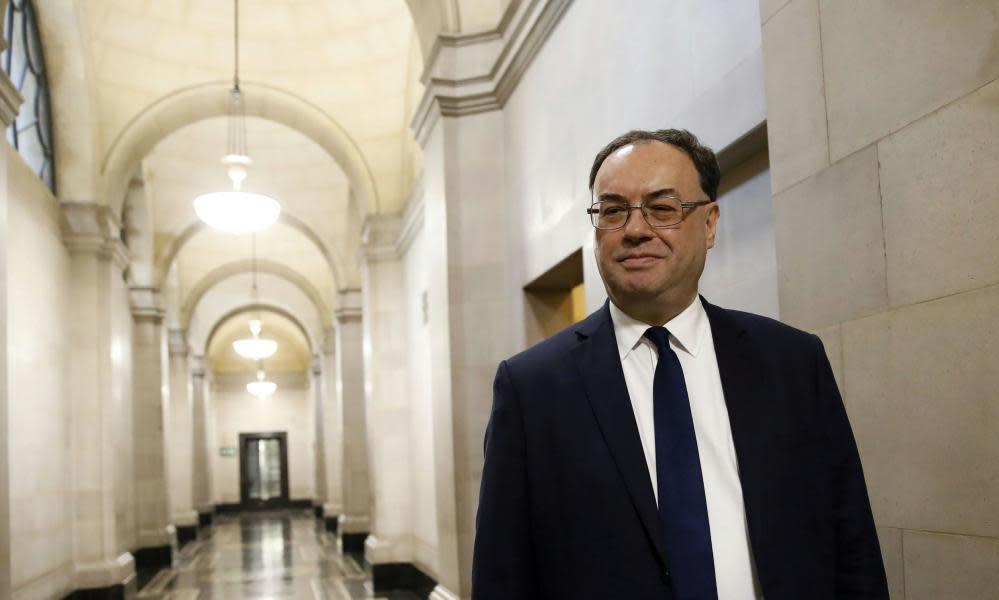Bank of England plays down use of negative interest rates to aid recovery

Andrew Bailey has cooled expectations that the Bank of England will deploy negative interest rates in the immediate future, despite the sharp rise in coronavirus infections weighing on Britain’s economic recovery.
Sounding the alarm over the growing risks to the economy, the Bank’s governor said the “hard yards are ahead of us” as a second wave spreads and stressed that some industries were suffering more than most. “Obviously that does reinforce the downside risks we have in our forecasts,” he added.
Speaking at a British Chambers of Commerce virtual event, Bailey said the Bank was ready to do everything it could to support the economy but played down expectations it could use negative interest rates to protect jobs and growth.
Used by other central banks around the world, including the European Central Bank and the Bank of Japan, to stimulate growth, negative rates involve central banks charging commercial banks interest on their deposits, with the aim of encouraging lending to businesses and households.
Bailey said the use of negative rates around the world had achieved “mixed” results and that the effectiveness of the policy depended on the timing of the move and the structure of a country’s banking system.
While saying the policy remained in the Bank’s toolbox for tackling a more severe downturn, he cooled expectations that the policy could be used soon. Threadneedle Street had suggested last week that it could cut interest rates to below zero next year, after officials said preparations were under way to allow the central bank to support the economy with lower borrowing costs.
Answering questions from business leaders about the signal the statement sent, Bailey said: “It doesn’t imply anything about the possibility of us using negative instruments.
“We have looked hard at the question of what scope there is to cut interest rates further and particularly negative interest rates.”
The pound gained slightly against the US dollar to above $1.28 on the international money markets after Bailey’s comments, as investors bet the Bank was less likely to cut interest rates below zero.
Bailey said the recent increase in Covid-19 cases was “very unfortunate”, warning that the UK economy remained 7% to 10% smaller than it was before the pandemic struck despite a rapid bounceback in recent months. “[It’s] extremely difficult news for all of us and the whole country,” he said.


